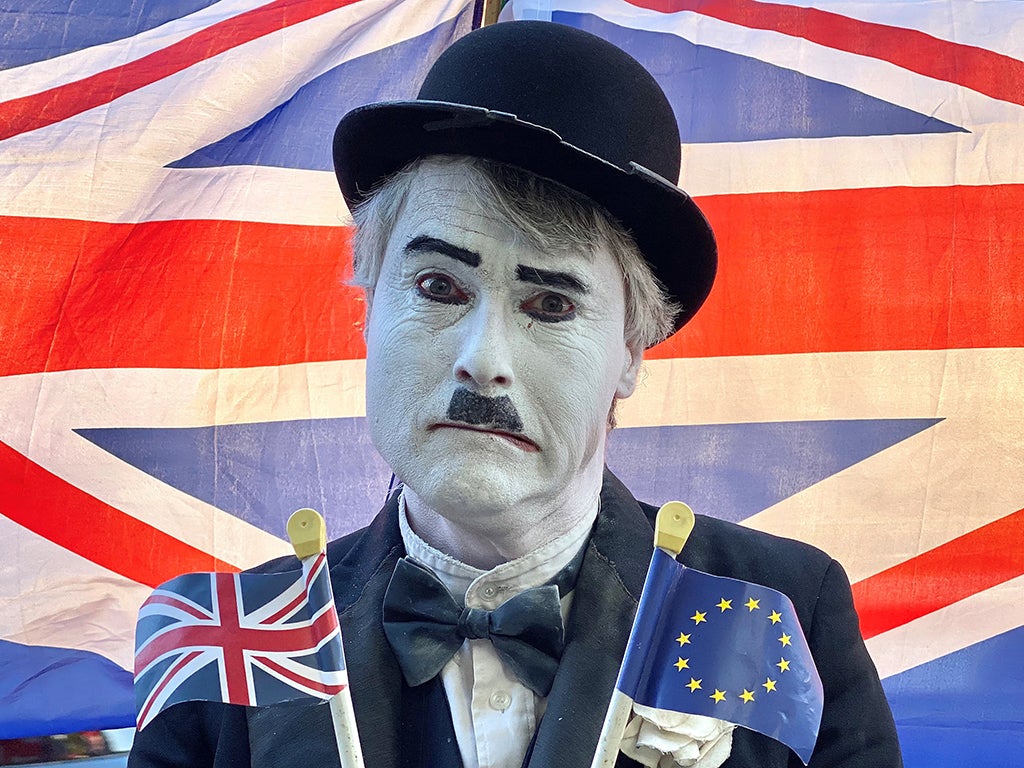
At the Labour’s conference this year Keir Starmer declared to the overwhelmingly pro-EU party membership that he would “make Brexit work”. This earned him applause – sustained applause. Regardless of whether Brexit is defined as “done”, there is no doubt the party political dividing lines on the issue aren’t what they used to be.
The Brexit backers of 2016 are still a potent political force, however. At the 2017 general election, confident that the Europe question had been settled, just 67 per cent of Leavers turned out, compared with 74 per cent of Remainers. In 2017 65 per cent of them voted Conservative, compared with 24 per cent for Labour. At the 2019 general election, despite the total Tory vote share rising by only one percentage point, among Leavers it rose by eight while Labour’s share fell by nine.
The Conservatives’ triumph was not the end of the story. Since the Leave vote YouGov has been asking voters whether Brexit was the “right or wrong decision” and while the series shows plenty of variation, there is a clear signal here: a majority of Britons now believe it was a mistake for the UK to leave the EU.
This isn’t a case of Leavers moving from saying Brexit was “right” to being “uncertain” (uncertainty among Leavers has long been higher than among Remainers) but a case of Leavers moving from right to “wrong”. Fifteen per cent of Leavers now say the UK was wrong to leave the EU, compared to just 7 per cent of Remainers who say it was right.
The rise in Britons saying the country was wrong to leave is based predominantly on those who didn’t vote at the time – either because they abstained or because they weren’t old enough. Based on this new majority it would be fair to suggest that if a referendum on rejoining the EU were held today, Britons would be minded to back membership.
There are enough polls that show as much – although the margins are tighter, it should be said, than the right/wrong numbers referenced above. There are important caveats to make about any future referendum, however.
The first is what I mentioned earlier: one in three Leavers, based on the last two general elections, are not turning out to vote (while the same is true of just one in four Remainers). Of those who voted in the 2016 referendum, the remaining electorate is, put simply, disproportionately Remain. On paper more Leavers are staying at home, either because, put morbidly, they have died, or because current political campaigns are doing little to attract them.
The second risk is a question of motivation. How many voters are vexed enough to put rejoining the EU back on the political agenda? Brexit sits low on the list of issues that matter most to voters right now. Its salience declined following the UK’s full departure in 2021 and it has since been overtaken by issues such as the economy and living standards. Brexit is not yet a subject that voters will head to the polling stations in droves for. And not only that, there is a risk that a campaign for the UK to rejoin the EU would not only motivate potential supporters but also potential opponents.
I’d wager that the reason Leavers have been less willing to engage with politics than Remainers since the referendum is in part because they feel Brexit is safe: their concerns have been listened to and their problems placed on the agenda. Any attempt to reverse that may radically change their perspective and upend the political landscape of today.
Britons aren’t too keen on Brexit anymore – that much is true. But are they ready and willing to reverse it? Not right now.
[See also: Are the Tories finished?]


